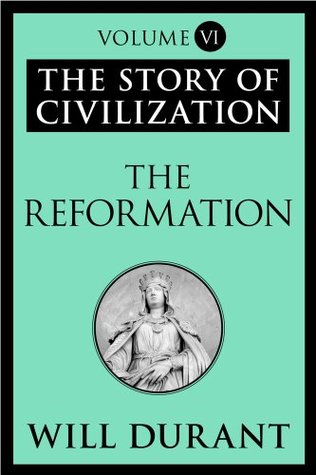More on this book
Kindle Notes & Highlights
by
Will Durant
Read between
February 27, 2020 - January 23, 2025
The princes, gladly adopting Roman law—which made the secular ruler omnipotent as delegate of the “sovereign people”—saw in Protestantism a religion that not only exalted the state but obeyed it; now they could be spiritual as well as temporal lords, and all the wealth of the Church could be theirs to administer or enjoy.
Luther inveighed against the application of ecclesiastical wealth to any but religious or educational purposes, and condemned the precipitate seizure of church buildings and lands by the nobility. A modest part of the spoils was yielded to schools and poor relief; the princes and nobles kept the rest.
After long delays, and amid the treason or cowardice of his nobles, Louis raised an army of 25,000 men, and marched out with mad heroism to face 100,000 Turks on a field near Mohács (August 30, 1526). The Hungarians were slaughtered almost to a man, and Louis himself was drowned in stumbling flight.
The westward advance of the Turks so obviously protected Protestantism that Philip of Hesse rejoiced at Turkish victories.
Already in 1525 Luther wrote: “There are nowadays almost as many sects and creeds as there are heads.”
So numerous an army of Protestant and Catholic Germans, of Spanish and Italian Catholics, gathered under the Emperor’s standard at Vienna that Suleiman found the omens unfavorable and turned back to Constantinople, while the Christian army, drunk with its bloodless victory, plundered Christian towns and homes, “spreading greater disaster,” said eyewitness Thomas Cranmer of England, “than the Turks themselves.”
At Luther’s suggestion it called itself Evangelical. He had originally advocated an ecclesiastical democracy, in which each congregation would select its own minister and determine its own ritual and creed; but his increasing dependence on the princes compelled him to surrender these prerogatives to commissions appointed by, and responsible to, the state.
Luther became more conservative than the princes. He approved the exaction of forced labor and heavy feudal dues from the peasant; and when one baron had twitches of conscience Luther reassured him on the ground that if such burdens were not imposed upon them commoners would become overbearing.


